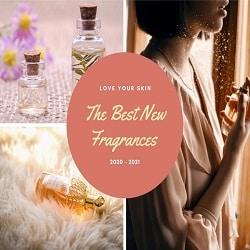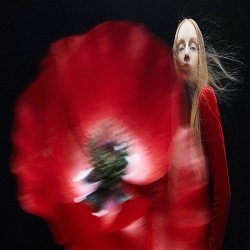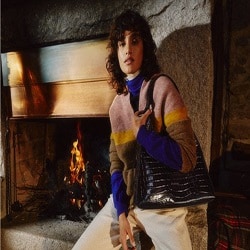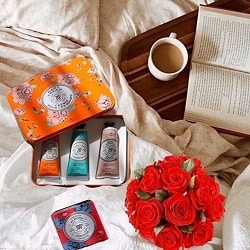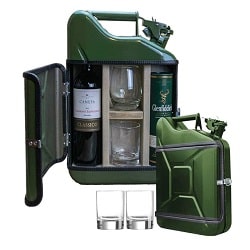In China, the economy is suffering from the ongoing trade tariff discussions with the U.S. According to the National Bureau of Statistics, China’s GDP increase was 6,5% in the third quarter of 2019, the weakest quarterly economic increase since 2009, the year of the world financial crisis. Read here, what generation Z has to do with it.
Manufacturing and exports are first victims of this development. Experts in China and abroad are expecting more economic challenges in China such as high debts level and the negative consequences of the trade battle between China and the U.S. At the same time the China National Bureau of Statistics also released information which paints a more positive picture; the total retail volume of the first half year of 2019 increased 8.4% compared to 2018. The increase of June was even 9.8% compared to June 2018. The retail volume of cosmetics in the first half year of 2019 reached 146.2 Billion Yuan (18.7 Billion Euro), an increase of 13.2% over 2018. Retail of cosmetics in June increased a whopping 22.5% compare to June 2018.
What are the reasons for the extra ordinary growth in cosmetics sales? According our observation, there are following major trends, which support the remarkable sales increase despite the general slow economy:

Generation Z has become an important consumer segment
The total population of this consumer group, born between 1995 and 2009 in China, is 260 million. The “00s”, the population born after 2000, is developing to an especially interesting target group for high-quality skin care products. Nowadays, it’s not unusual for elementary school kids in China to already begin using face masks. According to a survey done by the cosmetic industrial magazine Cosmetic Observer 80% of the 14 – 16 year old high school students interviewed have already used cosmetics and skin care products.
In 2016 the online shopping platform Tmall revealed the items of the first online purchase of the teenagers. The results were astonishing: cosmetic products including skin care products, make up, beauty tools and perfume make up 34,8% of the total first purchase of the boys; for girls the percentage reaches 68,1%! The current figures should be even higher. The reason for this development is partly because the much improved standard of living of their parents, who belong to the 70ties and 80ties generations.
These generations have a much better material life due to the strong economic development since the mid 80s. Also, today’s teenagers were born into the digital age and are very well informed about lifestyle products thank all kinds of social media platforms and tools.

Improved standard of living of their parents
As a result, these teens are very much aware of the needs of their skin and are ready to pay higher prices for good products, which are recommended by their friends or influencers they like. According to Kantar Consumer Panels, more than 80% of the teenagers between 14 and 16 years old spend 1000 Yuan (around 128 Euro) each year for cosmetics, more than 40% of them spend 4000 Yuan (around 511 Euro), while 14% of the kids are even laying out more than 10.000 Yuan (around 1278 Euro) yearly for cosmetics.
Besides international brands, they are very open to domestic brands, which usually have more elements related to Chinese culture than imported products. Products with clear features like moisturising or anti-blemish are among the favourites for young people. But functionality alone is definitely not enough to win over this consumer group. Product philosophy and product packaging are also essential. For example, the make up brand Perfect Diary, founded in 2016, has the slogan is “unlimited beauty”. The brand concept suggests that the younger generation should not be bound by external labels, but strive to break through limitations. This concept expresses the dreams of young people in China, to be more independent and to have the freedom to design their own life. The colourful packaging of the product line is truly eye-catching, well adapted to the young target group.
Since its start in 2016, the company has experienced breathtaking business expansion due to tits skilled online promotion strategy and cooperation with influencers like Li Jiaqi. At the 2018 double eleven sales festival on Tmall, Perfect Diary reached sales of 100 million Yuan (around 12 Mio Euro) within only 90 minutes and has since stayed on Tmall’s top selling list for make up. Perfect Dairy is a good example of benefiting from younger customers through correct product positioning, placement and promotion.
Social media channels and influencers as new sales boosters
Although many international social media platforms are not accessible in China, the country does have its own lively social media scene. The most import social media tool is WeChat, which was initially an instant messenger tool similar as What’sApp. In recent years, however, WeChat is becoming a “Super App” with various functions like shopping, payment, dating etc. Together with Alipay, it contributes to the current trend toward a cashless society in China. Thanks to its feature of a daily newsletter and countless plug in possibilities, companies and brands are using WeChat as a platform to issue product news. Direct communication with the consumer on a daily base is ensured. According to the experience of the author, the newsletter function of WeChat is very convenient and companies can reach millions of potential consumers through a well-managed WeChat company account.
At the same time, thanks to the popularity of short video program Apps such as TikTok, Kuaishou, and HuoShan, the power of influencers (in China they are called KOLs: Key Opinion Leaders) is becoming stronger and stronger. One of the most successful influencer is the “Lipstick brother” LI Jiaqi, a former sales consultant of L’Oréal in a second tier region of Southern China. With his 50 million followers on TikTok, Kuaishou and Little Red Book, he is one of the most valuable influencers for cosmetic products. Through his live show he achieved daily sales of 150.000 lipsticks at the 618 (18.June) shopping event in June 2019. He also challenged the Disney record of testing 380 lipsticks within one live show. His most successful sales record was selling 14,000 lipsticks within a one minute show on TikTok. Certainly, not all of the influencers are as successful. Li has inspired many young people becoming cosmetic bloggers and vloggers.
In order to attract younger consumers, cooperation with influencers are indispensable for cosmetic brands in China. The costs for one live show with influencers range from 120,000 Yuan (around 15,334 Euro) in the case of newcomers and 950,000 Yuan (about 121,393 Euro) in case of Li Jiaqi. Influencers are among the most important driving forces behind the strong development of Cina’s cosmetic market.

was made via 3D printing technology. Photo: Mei Gräfe
Crossover and co-branding trends on the cosmetic market
When unrelated lifestyle brands or shops offer cosmetic products in their assortments on a permanent or temporal base, this is considered a crossover trend. For example, the lifestyle shop NÖME in Beijing mainly offers Scandinavian style household articles, but they also have a full assortment of cosmetic products from make-up, skin care products to perfume. This trend began a few years ago and now thrives with other lifestyle shops and boutiques. Just imagine IKEA offering cosmetic products under their own brand! Co-branding is also very popular right now. Two brands from different areas launch a special product together for short period of time.
In this way two brands benefit from the huge rush of customers and enjoy an explosive increase in sales revenue due to the uniqueness of the products. A positive side effect is also the promotion of both brands involved. The Forbidden City and Beijing Bloomage HYINC Technology Co. Ltd., a supplier of hyaluronic acid for the pharmaceutical and the cosmetic industry, launched “Forbidden City Lipsticks” in 2018. Some of the colours like the “China Red” were sold out immediately after the product launch.
Another successful co-branding story is the launching of the “White Rabbit Life Lip Balm“, a co-branding project by two famous traditional brands from Shanghai: MAXAM Cosmetics and White Rabbit Toffee. Cosmetic products are not simply produced by the producers but might be created by players of completely different sectors. Due to the slow economy, factories are increasingly willing to produce smaller orders, making OEM production of cosmetics is becoming easier than ever. This trend provides more choices for the consumers and also leads to stronger competition on the market.
Opportunities and challenges for market players
Behind the above three trends are enormous opportunities and also challenges for market players. These trends correspond to the worldwide trends of youth culture, digitization and the creative unfolding of brand identity. But China has a special market and social media environment that is very different from Europe. Brands with good market knowledge and a deep understanding of Chinese history, values and today’s youth culture have good chances of success and can benefit fully from the huge market. In addition to the above three mega-trends, there are still many smaller trends in terms of products, among them, the deepening of the product segment. Take hair care as an example.
Besides conventional products such as shampoo and conditioner, hair oil and scalp care products are booming. In addition, male consumers in China are placing much more emphasis on skincare and wellness. Male models increasingly appear in commercials and make-up ads. Last but not least, skin care products for babies and toddlers continue to boom. Each of these trends certainly deserves a closer look. We will continue to observe the market and share more insights in near future.

AUTHOR:
Mei Gräfe,
managing director,
Intergate Consulting,
Munich, Germany


